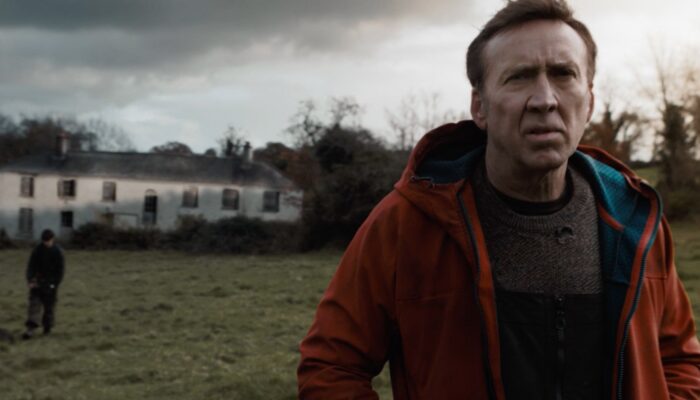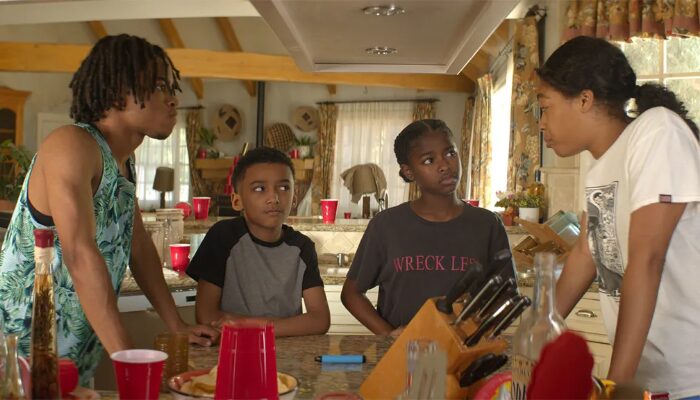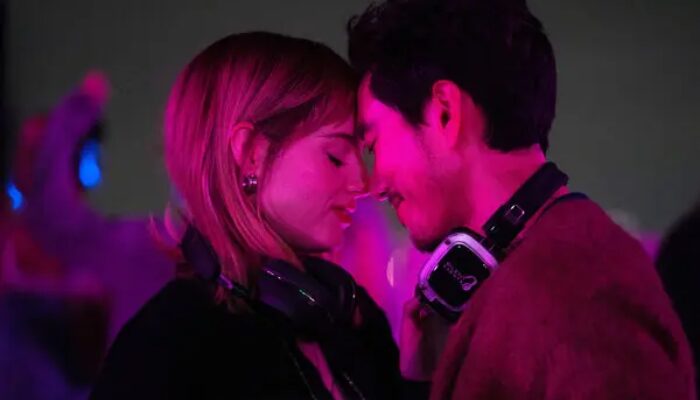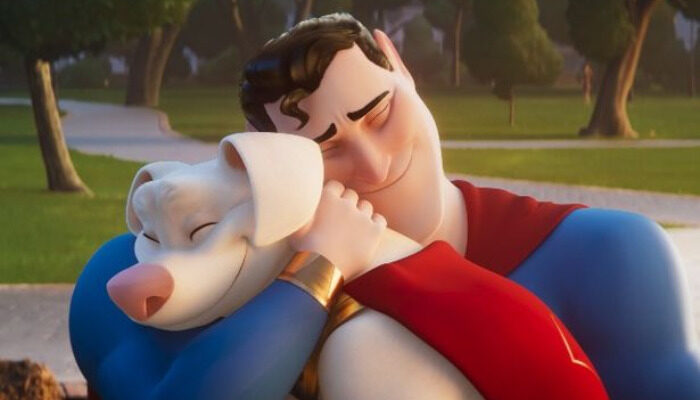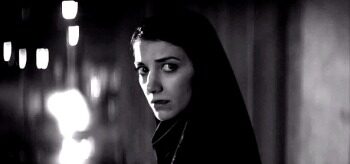Film Review: THE BAD BATCH (2016): Grindhouse done Arthouse
The Bad Batch Review
The Bad Batch (2016) Film Review, a movie written & directed by Ana Lily Amirpour, and starring Suki Waterhouse, Jason Mamoa, Jim Carrey, Jayda Fink, Giovanni Ribisi, Diego Luna, Yolonda Ross, Alina Aliluykina, Cory Roberts, E.R. Ruiz, Louie Lopez Jr., Aye Hasegawa, and Keanu Reeves.
I walked into this film with no prior knowledge, whatsoever. No prior knowledge meant no preconceived notions – and that, it turns out, was a good thing. The Bad Batch could be summed up as high-minded Arthouse, by way of Grindhouse. A snapshot of one brutally rationalized corner of some kind of larger Dystopia, it was a well acted, well shot take on a simple notion.
One man’s sentence is another man’s freedom.
Once it began to dabble in the notion that freedom, itself, can be overrated, however, its self-contained nature only made it seem that much more self-indulgent. At no point, however, does The Bad Batch approach the pretension levels of Southland Tales – I just thought I’d get that out there, for anyone who remembers that thing that happened.
Much like John Carpenter‘s Snake Plissken series, the condemned of the film made the best of their bad situation, by often enabling their personal worst (when life is a sentence to a prison colony, make Australia). For the residents of The Dream community, this meant devoting themselves to a never ending escapism. For the Bridgers, this meant devoting themselves to getting strong enough to literally prey on the weak – and nothing says weak like those devoted to escapism (okay, so maybe apologies to Australia).
The problem with the Escape from New York/ L.A. comparison, is that The Bad Batch had neither backstory nor context to its setting. Its merits, as a story-already-in-progress, is debatable; but I just couldn’t ignore the film’s open ends.
Out of one open end came Arlen (Suki Waterhouse), kicked out of wherever, for whatever, and seemingly not all that nonplussed about it. Despite the barren visage of whatever the Badlands used to be (Mexico, Texas, a new Dust Bowl in the Midwest?), she seemed happily intent on getting to The Dream. Clearly word had gotten back to wherever, about The Dream; but it wasn’t made clear if new arrivals knew about the other faction.
Prior knowledge, or not, Arlen’s Bridger initiation was our first real look at just how immersive Ana Lily Amirpour intended to be with her vision. It would also set Arlen on a semi-conscious quest for purpose, that begins with wrath, carries through with a sense of responsibility, and ends… I guess I’ll come to a conclusion, later on.
Suki Waterhouse brings a convincing degree of aimless determination to her role. Convincing enough, in fact, to make the character irritating; but we weren’t meant to like these characters – they were still a bad batch, after all.
Giovanni Ribisi, as the Screamer of The Dream, was an example of that undesirable element. Ribisi brought enough conviction to the role to almost convince me that his insane ramblings were bound to make sense, at some point. No, he just invested more into the role than the plot did – reserving the nonsense-as-sense moment for the man behind The Dream.
If anyone embodied the bad of the Batch, it was the Bridger credited as Miami Man (Jason Momoa). To the film’s credit, no pretense was attempted, regarding the merits of this character. He was a monster. It was then the responsibility of the film maker to convince us that there was mitigating depth to that monster.
To say that Momoa has been typecast, as the strong silent type, goes without saying, here; but there is something justifiably direct about his role – as if it were a resigned response to some of the film’s more absurd elements (like Dream civilization spoiling his daughter). Somewhere along this long head-shake, Momoa does convey an earnest resolve to save family; but like most everyone else, in this film, his character seemed either ill-informed, or unconcerned, about anything else.
The only character that seemed to have any idea what was going on was the Hermit (Jim Carrey). I guess I’ve seen enough of him, in my day, to recognize him in what may have been his most understated, nuanced role, yet. An appreciable role (given that his character was the only non-polarized player on the field) that Carrey managed to infuse with a dignified vulnerability, insane wisdom, and humorous sadness – all without saying a word. The man still has a knack for physical delivery.
If the Hermit was the most clued-in player, then Honey (Jayda Fink) had to be the most clueless of them all. She had to be – she was Miami Man’s toddler daughter, completely sheltered from the realities of the Badlands, and now a consequence of Arlen’s wrath. Her role was that of the catalyst character – someone worth risking much for, while suspending all other considerations.
Honey was a doll, and mercifully quiet; so I suppose it was no stretch that anyone could get attached to her. Frankly, however, I found myself regarding this chapter as Arlen’s new right arm.
That attachment would lead to a series of character intersections, eventually bringing answers for which Arlen had neither need nor interest. They were, therefore, clearly meant for the audience.
Enter Keanu Reeves, as the Dream that dreamed The Dream. Since Morpheus analogy might be unavoidable, for some, let me just say that this cult of Keanu was on an entirely different color of pill. This Dream’s mind-expanding mojo also needed work; which left me wondering just how screwed up the members of his breeding harem had to be, if they bought it, but Arlen didn’t (with talk of sowing seeds, indeed).
If anything, the Dream’s one coherent breakdown of his oasis (“Who runs Bartertown?”) did have something cogent to say about all civilization – putting the film back on track with its larger point about civil/ social construct. The underlying cynicism to it, however, reminded me that there was no larger backdrop, to this film. Both Miami Man & Dream gave us hints as to what came before; but with the entirety of the story confined to a microcosm, that one, nagging question remained.
All of these people amounted to a bad batch from what bunch? What could have necessitated such a breeding ground? Why did some of these characters seem to prefer The Dream to the society they were kicked out of, and why did Arlen seem so perpetually restless?
I guess you could say that Arlen spends the balance of the film seeking symmetry; and that after a string of inexplicable disappointments, she settles for the most brutally simplistic dynamic, with the least amount of moving parts.
That would be my most high-minded assessment of the film; but, honestly, the whole affair sort of boiled down to one of the most screwed up cases of Stockholm Syndrome to get the Arthouse treatment. Either appraisal would be apt, depending on your overall feel for the film. There was enough artistry to make a case for it, and enough aimless indulgence to work against it, making for a relatively polarizing film.
I would suggest a third view – one where this was Amirpour’s intention, and that she should be commended for it – but that would be a self-indulgent headache, on my part.
The Bad Batch was ultimately a decent effort at elevating the subject of man-as-beast, while simultaneously reducing social piety to its most brutally basic state (if anything, the Bridgers were merely extreme pragmatists, after all). However, the film suffers from doing so disjointedly.
A film with no real beginning, and a somewhat open end, amounts to mystery meat on the table. You may still enjoy it; but, given time, it might not sit very well.
One man’s good meal is another man’s indigestion.
5/10
Leave your thoughts on this The Bad Batch review and this film below in the comments section. Readers seeking more film reviews can visit our Movie Review Page, our Movie Review Facebook Page, and our Movie Review Google+ Page. Want up-to-the-minute notifications? FilmBook staff members publish articles by Email, Twitter, Tumblr, Google+, and Facebook.
Related Articles
FilmBook's Newsletter
Subscribe to FilmBook’s Daily Newsletter for the latest news!


